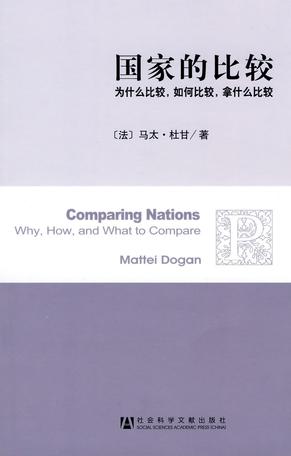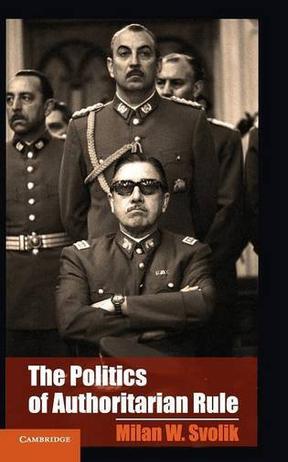-

难以抉择:发展中国家的政治参与
-

国家的比较
《国家的比较:为什么比较,如何比较,拿什么比较》是法国著名政治学家和社会学家马太-杜甘的重要著作,也是比较政治学领域的经典著作。《国家的比较:为什么比较,如何比较,拿什么比较》主要讨论了三个问题:在研究国家时为什么需要比较;如何比较;拿什么来比较,从而通过对政治学领域重要问题的讨论,具体地展现了比较方法如何应用于国家研究。《国家的比较:为什么比较,如何比较,拿什么比较》是论述比较方法特别是政治学领域的比较方法的一部基础著作,对于比较研究的意义及方法论做了比较精要的阐述,具有相当的学术价值。 -

The Dictator's Handbook
In this title, two renowned political scientists make the contrarian, research-based case that - regardless of any other factors political scientists or historians may find relevant - the calculations and actions of rulers are the driving force of all politics, and the primary goal of rulers is to maintain power as long as possible. In this clever and accessible book, Bueno de Mesquita and Smith introduce us to their perspective of the political world. They bare the logic of politics, starting from the simple premise that leaders pursue their own ends, and that populations either have, or more often don't have, the power to constrain them to a significant degree. The book is organized by a series interconnected questions, among them: Why do leaders who wreck their countries keep their jobs for so long? Why do autocracies have dismal economic policies? How are there so many suffering people in resource-rich lands? Why do 'natural disasters' disproportionately strike poor nations? Why do 'evil-doers' so often collect loads of foreign aid? Why are democracies so good at war? In answering these questions, the authors look at politics, the choices of public policies, and even decisions about war and peace as lying outside of conventional thinking about culture and history. They set aside ideas of civic virtue and psychopathology. Such notions simply are not central to understanding what leaders do and why they do it. Instead, Bueno de Mesquita and Smith see politicians as self-interested louts, just the sort of people you wouldn't want to have over for dinner, but without whom you might not have dinner at all. And from this perspective, they are able to answer some perplexing mysteries of politics, shed light on what we read in the newspapers every single day, and offer realistic ways of improving human governance. -

The Politics of Authoritarian Rule
What drives politics in dictatorships? Milan W. Svolik argues authoritarian regimes must resolve two fundamental conflicts. Dictators face threats from the masses over which they rule – the problem of authoritarian control. Secondly from the elites with whom dictators rule – the problem of authoritarian power-sharing. Using the tools of game theory, Svolik explains why some dictators establish personal autocracy and stay in power for decades; why elsewhere leadership changes are regular and institutionalized, as in contemporary China; why some dictatorships are ruled by soldiers, as Uganda was under Idi Amin; why many authoritarian regimes, such as PRI-era Mexico, maintain regime-sanctioned political parties; and why a country's authoritarian past casts a long shadow over its prospects for democracy, as the unfolding events of the Arab Spring reveal. Svolik complements these and other historical case studies with the statistical analysis on institutions, leaders and ruling coalitions across dictatorships from 1946 to 2008. -

多元社会中的民主
本书从实证的角度,运用比较的方法,立足于多元社会(黎巴嫩、加拿大、马来西亚、印度尼西亚等),建构了一些民主的新概念,预测人类社会的民主目标与走向。 -

The Logic of Political Survival
The authors of this ambitious book address a fundamental political question: why are leaders who produce peace and prosperity turned out of office while those who preside over corruption, war, and misery endure? Considering this political puzzle, they also answer the related economic question of why some countries experience successful economic development and others do not.The authors construct a provocative theory on the selection of leaders and present specific formal models from which their central claims can be deduced. They show how political leaders allocate resources and how institutions for selecting leaders create incentives for leaders to pursue good and bad public policy. They also extend the model to explain the consequences of war on political survival. Throughout the book, they provide illustrations from history, ranging from ancient Sparta to Vichy France, and test the model against statistics gathered from cross-national data. The authors explain the political intuition underlying their theory in nontechnical language, reserving formal proofs for chapter appendixes. They conclude by presenting policy prescriptions based on what has been demonstrated theoretically and empirically.